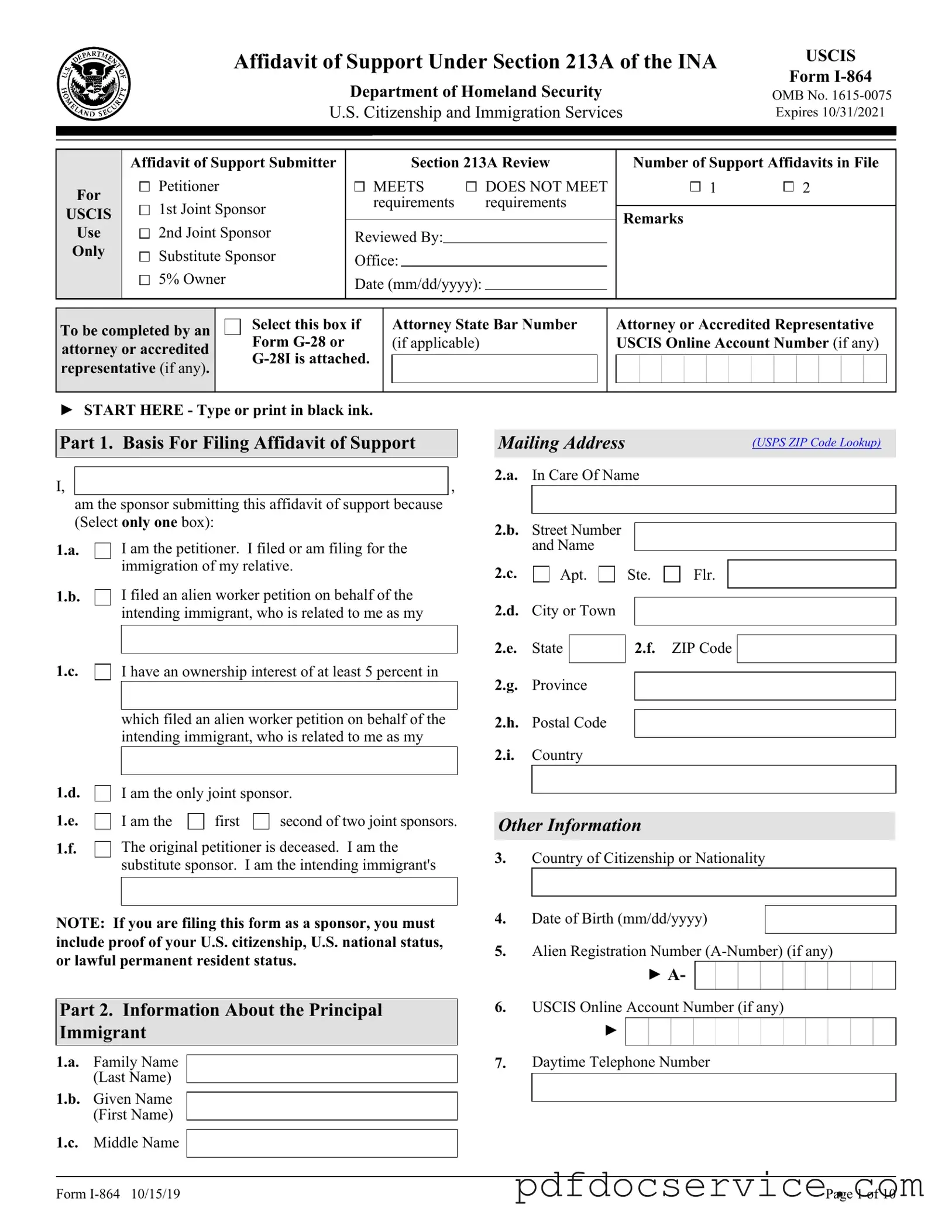Fill Your USCIS I-864 Form
The USCIS I-864 form, also known as the Affidavit of Support, is a crucial document used by sponsors to demonstrate their financial ability to support an immigrant. This form ensures that the immigrant will not become dependent on government assistance. Understanding its requirements is essential for a smooth immigration process.
Open USCIS I-864 Editor

Fill Your USCIS I-864 Form
Open USCIS I-864 Editor

Open USCIS I-864 Editor
or
Get USCIS I-864 PDF
Finish the form now and be done
Finish USCIS I-864 online using simple edit, save, and download steps.